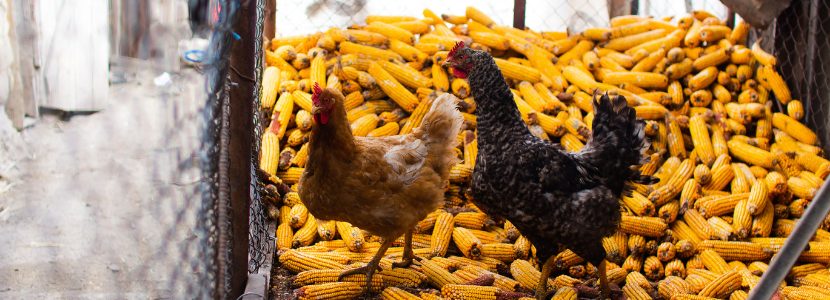Biofortified orange corn increases xantophyl density and yolk pigmentation in the eggs of laying hens.
The idea of biofortification is to increase the nutritional value of food, this can be done through conventional breeding or using genetic engineering to generate transgenic crops. In this case we are talking about the genotypes of corn with grains that contain higher levels of carotenoids.
|
Lutein and zeaxanthin are xantophyls. Which are a type of oxygen-containing carotenoid pigments found in dark green leafy vegetables, colofrul fruits, eggs, corn and avocados. |
Human consumption of carotenoids has been linked to health benefits, amongst which better eye health is reported. This is due to the fact that these pigments specifically contribute to protecting against and preventing age-related macular degeneration. The use of biofortified orange corn (high in carotenoids) in poultry diets could be a means to increase carotenoid concentrations in egg yolks.
The following study which is briefly mentioned below, was carried out with the purpose of evaluating the impact of corn on production, yolk pigmentation and carotenoid deposition in laying hens. As part of the experimental trials, 360 laying hens (Novegen white) were fed three different diets for 31 days. These diets varied regarding the type of corn being used. In this case, the kinds of corn used were: white, yellow and orange.
Results regarding the evaluation of color in egg yolks.
Results regarding the carotenoid composition of egg yolks
It was concluded that biofortified orange corn is a good food source to deposit more zeaxanthin in egg yolks. As well as having the capacity to potentially increase yolk pigmentation compared to the use of the other two types of corn tested in this study.
Source: Excerpt taken from research article pblished in ResearchGate. Biofortified orange corn increases xanthophyll density and yolk pigmentation in egg yolks from laying hens
